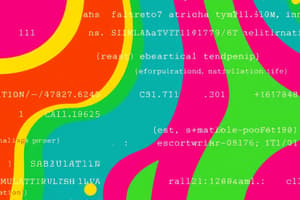Podcast
Questions and Answers
Which statement best describes programming languages?
Which statement best describes programming languages?
- Programming languages are only used in business-oriented applications.
- Programming languages are primarily used for creating software to solve problems. (correct)
- Programming languages are designed to write scientific applications only.
- Programming languages are not necessary for writing software.
Which language was originally designed for writing portable applications?
Which language was originally designed for writing portable applications?
- COBOL
- Java (correct)
- FORTRAN
- Python
What is a key characteristic of Python programming language?
What is a key characteristic of Python programming language?
- Mainly used for hardware programming
- Limited applications in web development
- Complex syntax
- Known for its simplicity, elegance, and ease of use (correct)
Which language is commonly used in data science and machine learning?
Which language is commonly used in data science and machine learning?
What makes Java a dominant force in enterprise development?
What makes Java a dominant force in enterprise development?
Which type of programming languages are the most widely used in the programming world?
Which type of programming languages are the most widely used in the programming world?
Which language is widely used in game development, web applications, and mobile app development?
Which language is widely used in game development, web applications, and mobile app development?
Which language is widely used in web development, especially for creating interactive and dynamic web pages?
Which language is widely used in web development, especially for creating interactive and dynamic web pages?
Which language is known for its simplicity, efficiency, and concurrency capabilities?
Which language is known for its simplicity, efficiency, and concurrency capabilities?
Which language is rapidly gaining popularity in the low-level systems programming domain?
Which language is rapidly gaining popularity in the low-level systems programming domain?
Which type of languages are designed to optimize performance and functionality in specific domains?
Which type of languages are designed to optimize performance and functionality in specific domains?
What is MATLAB widely used for?
What is MATLAB widely used for?
Study Notes
Discovering the World of Programming Through Languages
Programming, at its heart, is the art of designing and writing software to solve problems or create functionalities. This vast field is brought to life through a variety of coding languages, each with their own strengths and specialties. Let's delve into the rich tapestry of programming languages, shining a light on some of the most popular and versatile ones.
Pioneering Languages
The programming landscape has evolved significantly since its inception. Early languages, such as FORTRAN (Formula Translation) and COBOL (Common Business Oriented Language), were groundbreaking, catering to scientific and business applications respectively. These languages established the foundations for more advancements and have endured, albeit in a more niche capacity, to the present day.
General-Purpose Languages
General-purpose languages are the most widely used in the programming world. They are designed to be flexible and versatile, enabling programmers to solve a wide range of problems. Some of the most popular general-purpose languages include:
- Python: Known for its simplicity, elegance, and ease of use, Python has gained immense popularity in recent years. It is widely used in data science, machine learning, web development, and more.
- Java: Originally designed for writing portable applications, Java has become a dominant force in enterprise development. Its popularity can be attributed to its robustness, reliability, and ability to handle large-scale applications.
- C# (C Sharp): Created by Microsoft, C# is a general-purpose language with a strong focus on object-oriented programming and .NET Framework. It is widely used in game development, web applications, and mobile app development.
- JavaScript: Initially a client-side scripting language, JavaScript has evolved into a full-fledged programming language. It is used extensively in web development, especially for creating interactive and dynamic web pages.
Niche and Specialized Languages
While general-purpose languages cater to a wide range of applications, there are also languages that are specialized for specific domains. These languages are designed to optimize performance and functionality in their respective fields.
- Ruby: Ruby is a dynamic, open-source programming language that focuses on simplicity and productivity. It is widely used in web development and scripting.
- Go: Go, or Golang, is a statically typed, compiled programming language designed at Google. It is known for its simplicity, efficiency, and concurrency capabilities. Go is widely used in building efficient and scalable systems.
- Rust: Rust is a systems programming language that emphasizes performance, memory safety, and concurrency. It is rapidly gaining popularity in the low-level systems programming domain.
- MATLAB: MATLAB is a proprietary numerical computing environment that is widely used for scientific computing and mathematical computations.
History and Evolution
The programming landscape is constantly evolving, with new languages emerging and existing ones evolving to meet new challenges and opportunities. Programming languages have a rich history, with each language carrying a unique set of features and capabilities.
The earliest programming languages were designed for specific purposes, such as business or scientific applications. Over time, there has been a trend towards general-purpose languages that can be used for a wide range of applications. Today, we have a diverse and vibrant ecosystem of programming languages that cater to a wide range of needs.
Conclusion
Programming languages are the backbone of the software industry, enabling the creation of innovative solutions and the shaping of our digital world. Each language has its own strengths and specialties, and there is no one-size-fits-all solution. By understanding the landscape of programming languages, programmers can make informed decisions about which languages to learn and use, ultimately opening up a world of possibilities for creating innovative and impactful software solutions. So, dive deep into the world of programming languages, and let your curiosity and creativity flourish!
Studying That Suits You
Use AI to generate personalized quizzes and flashcards to suit your learning preferences.
Description
Delve into the rich tapestry of programming languages, from early pioneers like FORTRAN and COBOL to modern giants like Python, Java, C#, and JavaScript. Discover the specialties of general-purpose languages and the optimization of niche and specialized languages for specific domains. Explore the history, evolution, and importance of programming languages in shaping the software industry.




